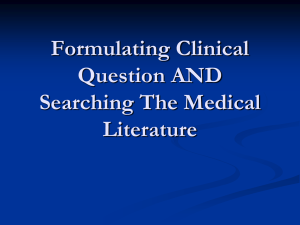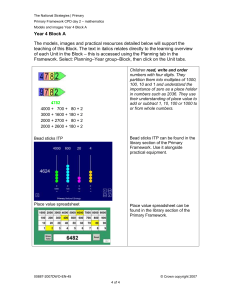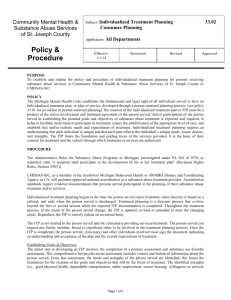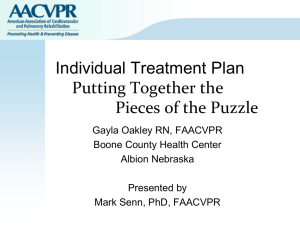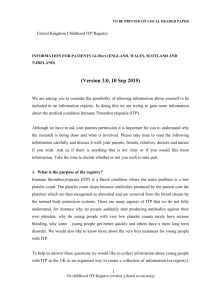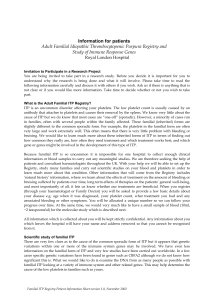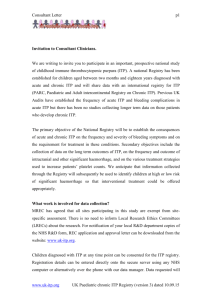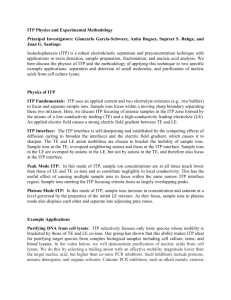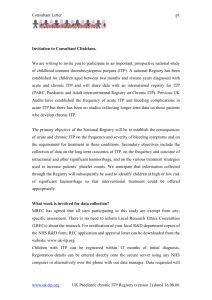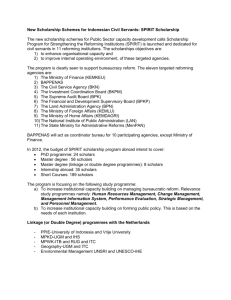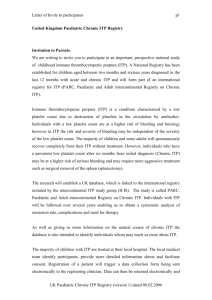Science and Engineering (SES) minutes
advertisement
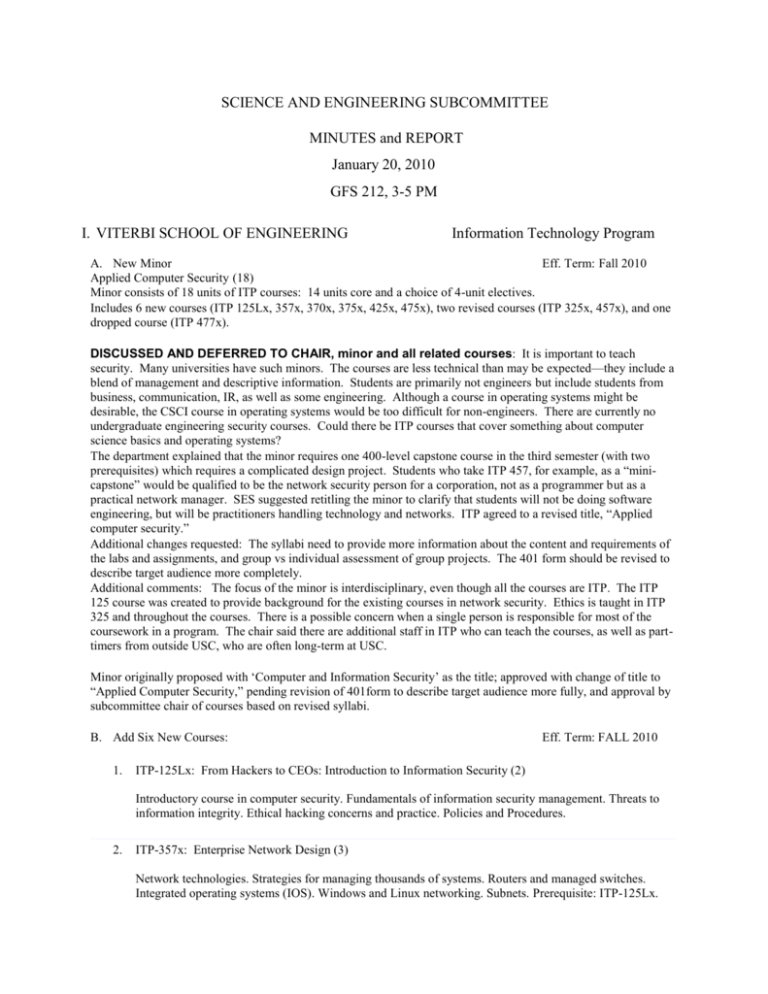
SCIENCE AND ENGINEERING SUBCOMMITTEE MINUTES and REPORT January 20, 2010 GFS 212, 3-5 PM I. VITERBI SCHOOL OF ENGINEERING Information Technology Program A. New Minor Eff. Term: Fall 2010 Applied Computer Security (18) Minor consists of 18 units of ITP courses: 14 units core and a choice of 4-unit electives. Includes 6 new courses (ITP 125Lx, 357x, 370x, 375x, 425x, 475x), two revised courses (ITP 325x, 457x), and one dropped course (ITP 477x). DISCUSSED AND DEFERRED TO CHAIR, minor and all related courses: It is important to teach security. Many universities have such minors. The courses are less technical than may be expected—they include a blend of management and descriptive information. Students are primarily not engineers but include students from business, communication, IR, as well as some engineering. Although a course in operating systems might be desirable, the CSCI course in operating systems would be too difficult for non-engineers. There are currently no undergraduate engineering security courses. Could there be ITP courses that cover something about computer science basics and operating systems? The department explained that the minor requires one 400-level capstone course in the third semester (with two prerequisites) which requires a complicated design project. Students who take ITP 457, for example, as a “minicapstone” would be qualified to be the network security person for a corporation, not as a programmer but as a practical network manager. SES suggested retitling the minor to clarify that students will not be doing software engineering, but will be practitioners handling technology and networks. ITP agreed to a revised title, “Applied computer security.” Additional changes requested: The syllabi need to provide more information about the content and requirements of the labs and assignments, and group vs individual assessment of group projects. The 401 form should be revised to describe target audience more completely. Additional comments: The focus of the minor is interdisciplinary, even though all the courses are ITP. The ITP 125 course was created to provide background for the existing courses in network security. Ethics is taught in ITP 325 and throughout the courses. There is a possible concern when a single person is responsible for most of the coursework in a program. The chair said there are additional staff in ITP who can teach the courses, as well as parttimers from outside USC, who are often long-term at USC. Minor originally proposed with ‘Computer and Information Security’ as the title; approved with change of title to “Applied Computer Security,” pending revision of 401form to describe target audience more fully, and approval by subcommittee chair of courses based on revised syllabi. B. Add Six New Courses: 1. Eff. Term: FALL 2010 ITP-125Lx: From Hackers to CEOs: Introduction to Information Security (2) Introductory course in computer security. Fundamentals of information security management. Threats to information integrity. Ethical hacking concerns and practice. Policies and Procedures. 2. ITP-357x: Enterprise Network Design (3) Network technologies. Strategies for managing thousands of systems. Routers and managed switches. Integrated operating systems (IOS). Windows and Linux networking. Subnets. Prerequisite: ITP-125Lx. Science and Engineering Subcommittee Minutes and Report January, 2010 Page 2 of 4 3. ITP-370x: Information Security Management (3) Management techniques for security projects. Security team management. Laws and regulations for information security. Disaster recovery. Security Audits. Prerequisite: ITP-125Lx. 4. ITP-375x: Digital Forensics (3) Forensic science techniques. Digital evidence preservation and presentation. Processes and methodologies for digital analysis. Prerequisite: ITP-125Lx. 5. ITP-425x: Web Application Security (4) Web application security techniques. eCommerce vulnerabilities. Online fraud. Solutions to spam and identity theft. 6. ITP-475x: Advanced Digital Forensics (4) Advanced forensic techniques. Live image analysis. Network level forensic investigation. Server forensic techniques. Deposition and trial. Prerequisite: ITP-375. C. Revise Two Courses 1. Eff. Term: FALL 2010 ITP-325x Current: Web Security Computer networks and inherent security issues that apply to networking. Encryption protocols, securing servers, and secure network architectures. Prerequisite: ITP-104 New: Ethical Hacking and Systems Defense Hacking from a defense perspective. Hacker ethics and laws. Penetration testing. Vulnerability Assessment. Securing workstations, servers, and networks. 2. ITP-457: Network Security (4) Network policy and mechanism, firewalls, malicious code; intrusion detection, prevention, response; cryptographic protocols for privacy; risks of misuse, cost of prevention, and societal issues. Not for major credit for Computer Science and Electrical Engineering majors. Prerequisite: 1 from (ITP-104 or ITP260). New: No credit restrictions. Prerequisite: ITP-357. D. Terminate One Course 1. Eff. Term: FALL 2010 ITP-477x: Security and Computer Forensics (4) Prevention, detection, apprehension, and prosecution of security violators and cyber criminals; techniques for tracking attackers across the Internet and gaining forensic information from computer systems. Science and Engineering Subcommittee Minutes and Report January, 2010 Page 3 of 4 Members Present Hans Bozler Frank Corsetti Thomas Henyey Alice Parker James Weiland Edwenna Werner, Staff Members Absent Andrea Armani Antoine Bechara Jean Doh Salman Khaleghi Chi Mak Suya You Guests Ashish Soni, ITP Joseph Greenfield, ITP Michael Crowley, Computer Science Science and Engineering Subcommittee Minutes and Report January, 2010 Page 4 of 4 COURSES APPROVED BY CHAIR ONLY: II. COLLEGE OF LETTERS, ARTS & SCIENCES Earth Sciences-GEOL A. Revise two courses: Eff. Term: FALL 2010 1. GEOL-107Lg Oceanography (4) Physical, chemical, and geological character of the oceans and ocean basins. Origin of the oceans. Ocean processes and agents. Economic value of the oceans. Lecture, 3 hours; laboratory, 2 hours. One all-day field trip required. Current: GEOL 107Lgx (4) Registration restriction: Not available for major credit to earth or geological sciences majors. Revision: GEOL 107Lg (4) No registration restriction APPROVED 2. GEOL-240Lg Earthquakes (4) Causes of earthquakes and nature of large faults; earthquake hazard and risk; world's great earthquakes; understanding the Richter scale. Lecture, 3 hours; laboratory, 2 hours; one fieldtrip required. Current: GEOL 240Lgx (4) Registration restriction: Not available for major credit to earth or geological sciences majors. Revision: GEOL 240Lg (4) No registration restriction APPROVED
